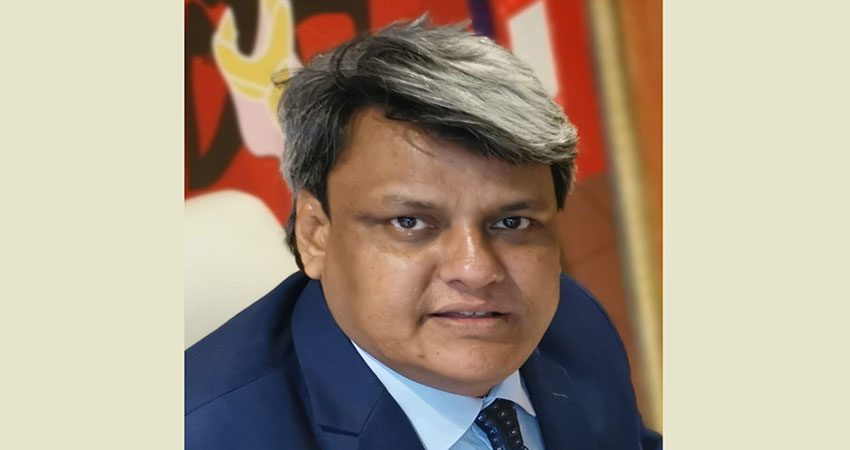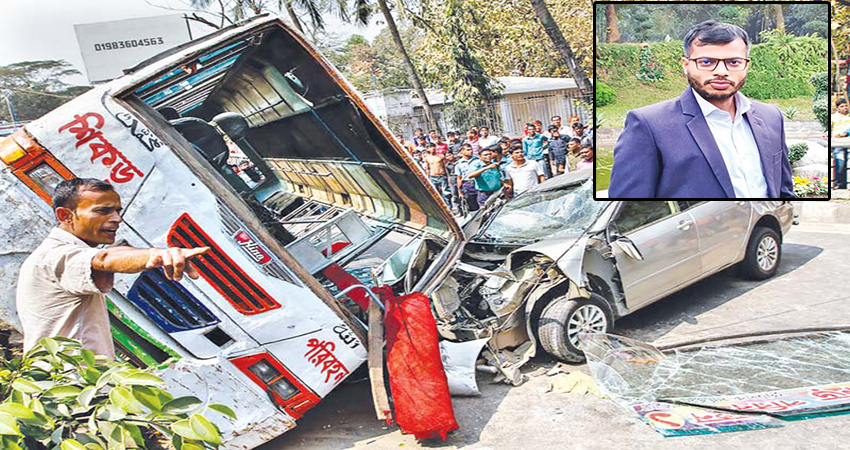When there is an extreme energy crisis in the country, orders for area-wise load shedding, announcement of closure of shopping malls after a certain time, closure of diesel-powered power plants, and plans to reduce government office hours are nothing surprising.
A few days ago, Member of Parliament Momtaz herself proudly said in Parliament: “The electricity situation will be such that, how the hawkers go around selling bangles, we will also have to go around selling electricity. But there will be no buyers.”
If what MP Momtaz says is true, then it is logical to question why this sudden energy crisis came over our country. But instead of giving importance to this as a political statement, it’s important we take a more pragmatic approach in understanding this situation.
Recently, the political parties and leaders of our country have been busy carrying out “diplomacy” in various quarters. But when discussing energy, water, food, and climate change, such diplomacies have yielded very little.
One of the likely reasons is because the government’s understanding of diplomacy is to pour money into lobbyists and PR firms in Washington DC, London, and New Delhi. The brouhaha with the US’s sanctioning of RAB is a good example, to that end.
It is surprising to know that a government that has been in power for 13 or so years does not have any large-scale fuel supply agreements with OPEC countries -- the oil-producing countries in the Middle East. Without a mid-term LNG deal with Qatar, today’s load-shedding would have resulted in total black-outs.
There is a small contract with India for the supply of 60,000 metric tons of diesel. India would surely have stopped supplying this diesel if it had not got cheap oil from Russia after the Ukraine invasion, as that itself would have resulted in a fuel crisis. India and China are enjoying the benefits of the Ukraine war; Bangladesh is not the beneficiary of Russia's cheap oil, the country has no large-scale refinery investments despite the biggest project in the country's history with Russia.
Even after the diplomatic failure on oil and electricity, the government can be seen to be justifying its own failures for Dhaka. The ministry of foreign affairs has meetings in and out with various embassies. But what happens in the end?
The simple answer, in one word, is “nothing.” Yet, every visit and meeting is preceded and followed by a vast foreign policy fleet.
Bangladesh’s foreign policy is going through its darkest periods in its 51-year history.
The country's elite force is under ban for the first time in history, while Bangladeshi soldiers have shed a lot of blood towards peacekeeping missions. The government’s inaction on the issue of disappearances and human rights is grounds for further sanctions unless something is done to address these issues. The status of receiving the much-coveted GSP from the US has been in limbo for years now, and the less said about Europe the better.
In the wake of the blockade of oil producing countries, including the Middle East, against the United States in the 70s, Ziaur Rahman demanded that the United Nations General Session obtain fuel oil at a relatively affordable price for the less developed countries at that time (almost every country that participated with Bangladesh in the Non-Aligned Conference of Algiers during Bangabandhu's time praised that move).
Such a call was appreciated by the industrialized countries of the West. As a result, throughout the 80s and 90s, Bangladesh received cheap oil from several oil-producing countries in the Middle East (Kuwait, Iraq, Saudi Arabia).
But today, Bangladesh has no permanent fuel supply agreements with those countries, or any other oil producer in the Middle East. Bangladesh buys oil and gas from Singapore’s spot market -- only for the sake of domestic foreign brokers. But in the question of energy security, having diverse sources of primary energy is mandatory for emerging economies like Bangladesh.
Bangladesh is not benefiting from oil from dozens of oil producing countries in the Middle East.
Today we have oil, gas, or coal -- but none of the three primary fuels have large-scale permanent fuel supply cycles in Bangladesh. In the march of unstoppable development, that is very depressing indeed. Meanwhile, Bangladesh’s green electricity production is only 4% of the total electricity
Today, it is said that there is no useful coal reserve for coal power plants, including Barapukuria. But the highest quality coal is available in neighbouring Indonesia or Australia at affordable prices. But even then, there is no statutory supply agreement with Bangladesh.
Today, due to the high price of primary fuel in the spot market, the government is unable to import oil and LNG to save dollars. We have seen the extravagant jubilation in conquering the sea to that end, but even after a decade the government could not extract any gas in the Bay of Bengal block.
Jail piracy has not stopped in the block along the Myanmar/India maritime border, where drug smuggling continues unabated. While Myanmar has gas in its own block, it is also starting extraction work. Today, power plants are shutting down and load-shedding is being carried out to save oil dollars. But the power plant is being charged for capacity in dollars. This brings to question the intellects of those carrying out our diplomacy.
After the US’s sanctions on RAB, our diplomatic circles have been completely busy trying to put out that fire. But making deals in secret at the expense of national interests to lift an embargo is not a diplomatic success. A few indicators of diplomatic success in the context of Bangladesh may be to first ensure that you have energy security in times of crisis: Verifying whether there is a window for higher education and research linkages, use of intellectual property and technology transfer.
Whether the flow of water in uniform international rivers is active during the dry season, whether there is a guarantee of food imports in the global supply crisis, whether there is a guarantee of minimum industrial raw materials in times of crisis, foreign refugees to confirm whether there is any going back, whether there are technical transactions in the extraction of gas in the sea.
Diplomacy is a vital front for any state -- for which the diplomatic circles of the state have to be visionary and active. Rushing to import oil and wheat from India and Russia after a crisis is not diplomacy. It takes time to think about them.
Oil, wheat, and raw materials will not come in during a crisis if foreign policy of a country is organized only around elections, if power diplomacy is practiced, if money is poured into foreign lobbyists/PR firms. Green electricity technology will not arrive through any of this.
Our diplomatic experts must perform during times of crisis; bringing oil, wheat, raw materials, vaccines, and technology, successfully repatriating the Rohingya as well. But the collective performance of the diplomatic corps in these domains has, so far, failed to achieve any of this.
The government has to ensure “real” diplomacy for military security, energy security, water security, food security, climate security, and technological security for Bangladesh. But that would require accountability, I guess.
Writer: Dr Rakib Al Hasan is a physician, author, activist, and youth leader.



















